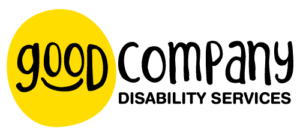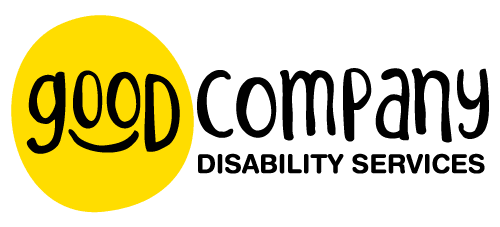Behaviour Support Policy
Good Company Disability Services Pty Ltd
Effective Date: 29 May 2025
Review Date: 29 May 2026
Contact: he***@***************om.au
1. Purpose
This policy outlines Good Company’s approach to supporting participants who may display behaviours of concern. As an unregistered provider of NDIS supports, Good Company is committed to delivering ethical, proactive, and rights-based behaviour support strategies that do not involve restrictive practices under any circumstances.
2. Scope
This policy applies to:
All employees, support workers, contractors, and volunteers
Participants supported by Good Company
Families, carers, and professional stakeholders involved in participant care
3. Definitions
| Term | Definition |
|---|---|
| Behaviour of Concern | Any behaviour that places the person or others at risk and impacts quality of life. |
| Positive Behaviour Support (PBS) | A person-centred, evidence-based approach focused on understanding and reducing behaviours of concern through proactive support. |
| Restrictive Practice | Any intervention or practice that restricts the rights or freedom of movement of a person with disability. Includes seclusion, physical, chemical, mechanical, and environmental restraint. |
| Unregistered Provider | A provider of NDIS-funded supports that is not registered with the NDIS Commission and therefore cannot implement any form of regulated restrictive practice. |
4. Guiding Principles
Person-Centred Practice – Supports are tailored to the individual’s needs, preferences, and values.
Human Rights Commitment – Participants are supported with dignity, safety, and autonomy in line with the United Nations Convention on the Rights of Persons with Disabilities (UNCRPD).
Zero Tolerance for Restriction – Good Company does not use restrictive practices under any circumstances.
Prevention and Early Support – Behaviours are understood in context, and addressed with positive, non-restrictive strategies.
Compliance – This practice complies with the Privacy Act 1988 (Cth) and the NDIS Practice Standards on the date noted as effective date on this policy.
5. Legal and Regulatory Context
Good Company operates in accordance with:
NDIS (Restrictive Practices and Behaviour Support) Rules 2018
NDIS Code of Conduct
NDIS Practice Standards (applicable to unregistered providers)
Relevant state/territory laws regarding restrictive practices and duty of care
United Nations Convention on the Rights of Persons with Disabilities
6. Positive Behaviour Support Practices
6.1. Functional Behaviour Assessment (FBA)
Observational and data-informed processes conducted collaboratively with allied health professionals
Aims to understand the purpose behind behaviours and identify triggers
6.2. Individualised Support Strategies
Plans include proactive tools such as:
Communication aids (e.g., key word signs, visuals)
Choice-making opportunities
Sensory modulation
Predictable routines and transitions
Escalation responses focus on de-escalation, safety, and reassurance—not restriction
7. Prohibition on Restrictive Practices
As an unregistered NDIS provider, Good Company:
Is not legally authorised to implement restrictive practices
Cannot and will not use physical, chemical, mechanical, or environmental restraint, or seclusion
Will not support or condone any third party to apply restrictive practices on its behalf
Important: Any use of restrictive practices by staff, whether intentional or accidental, will be treated as a serious breach of policy and may result in disciplinary action including termination of employment and reporting to relevant authorities.
8. What to Do When a Behaviour Escalates
| Behaviour Stage | Staff Response (Non-Restrictive) |
|---|---|
| Early signs of distress | Use distraction, offer choices, use preferred calming strategies |
| Heightened behaviour | Remove triggers, reduce demands, maintain calm non-threatening tone |
| Immediate risk of harm | Ensure safety of others, call for team support, call 000 if needed |
| Post-incident | Document behaviour, debrief with participant, notify coordinator |
9. Examples of Proactive Supports
Staff are encouraged to use a wide range of positive, ethical supports:
Visual aids (schedules, cues)
Social stories and role plays
Calm zones or quiet activities
Sensory regulation tools (weighted items, noise-cancelling headphones)
Breaks and redirection before distress escalates
Positive reinforcement and communication supports
10. Referral Pathways for Restrictive Practice Needs
If a participant is assessed as potentially requiring restrictive practices:
Good Company will initiate an urgent review with the participant’s support team
The matter will be escalated to the Support Coordinator and/or parent or guardian
Where requested, referral will be made to a registered NDIS behaviour support provider
Good Company may continue non-restrictive support during transition, where it is safe to do so
11. Behavioural Risk Management
Behavioural risks are identified during intake and monitored through support delivery
Risks are recorded in the organisational risk register and reviewed regularly
Coordinators and senior staff lead behaviour risk reviews following incidents or plan changes
This process links to our Safeguarding & Risk Management Policy
12. Roles and Responsibilities
| Role | Responsibilities |
|---|---|
| Support Workers | Implement proactive plans; report concerns; never apply restrictions |
| Coordinators | Oversee planning, documentation, and liaison with external professionals |
| Directors / Management | Maintain compliance; oversee training; manage risk and incident review |
13. Training and Staff Capacity
All staff receive:
Positive Behaviour Support (PBS) training from participants’ specialists where recommended and agreed to by the NDIS participant and/or their guardian
Ongoing training in industry best practice, communication, and where applicable, available from the participants’ specialist and agreed to by the NDIS participant and/or their guardian trauma-informed care, and/or emotional regulation
Education on the legal and ethical prohibition of restrictive practices
Escalation procedures for risk and emergency responses
14. Advocacy and Participant Rights
Participants have the right to:
Be supported in the least intrusive, most respectful manner
Decline support strategies they are uncomfortable with
Be involved in all planning decisions
Access independent advocacy services upon request
15. Related Policies and Documents
Safeguarding & Risk Management Policy
Incident Management Policy
Complaints Management Policy
Participant Rights and Advocacy Policy
Risk Register and Behaviour Incident Log Procedures
16. Review
This policy will be reviewed:
Annually
After any incident involving behaviours of concern
If there is a change to NDIS or state/territory legislation
Following external recommendations from regulatory authorities

